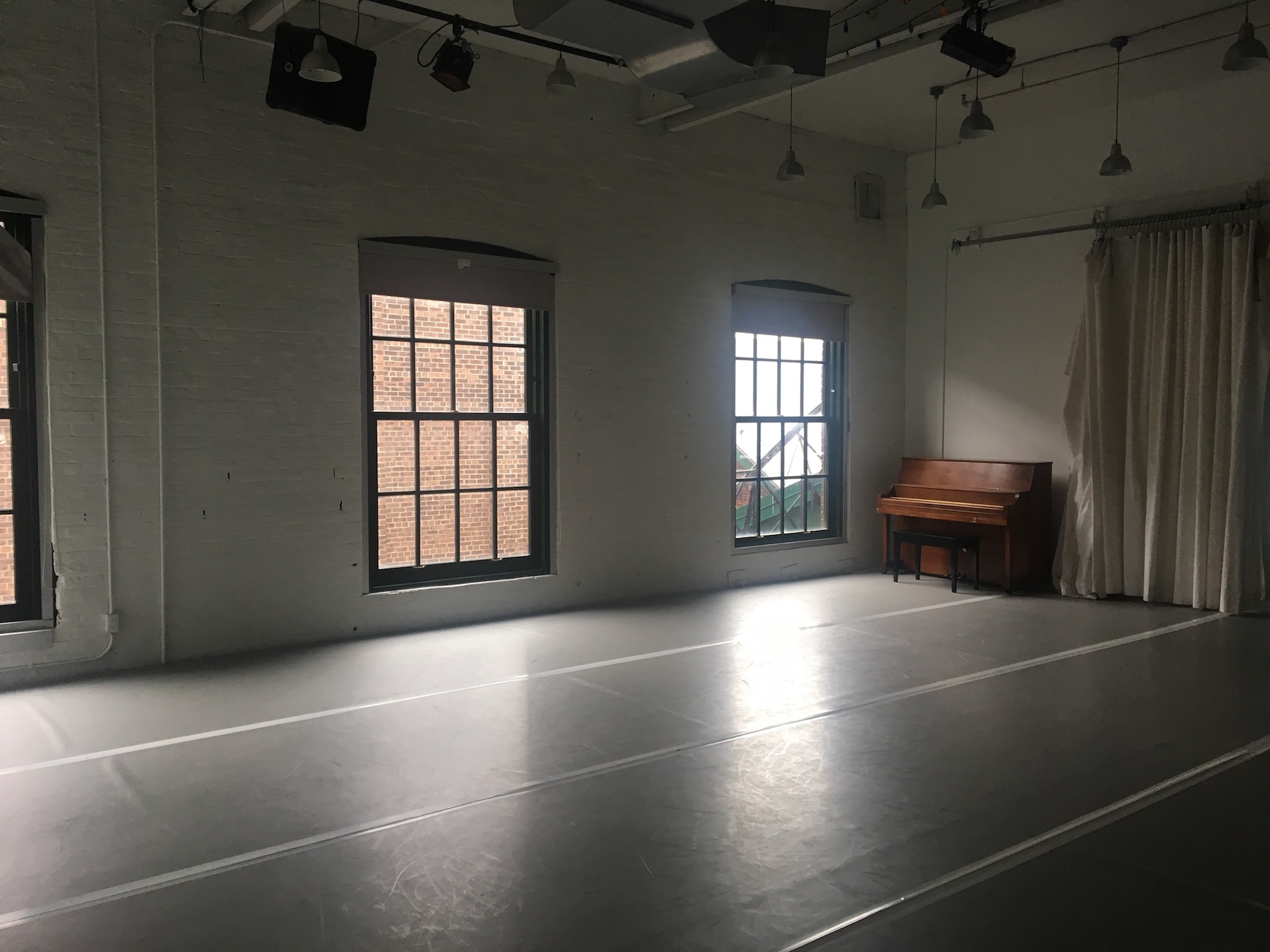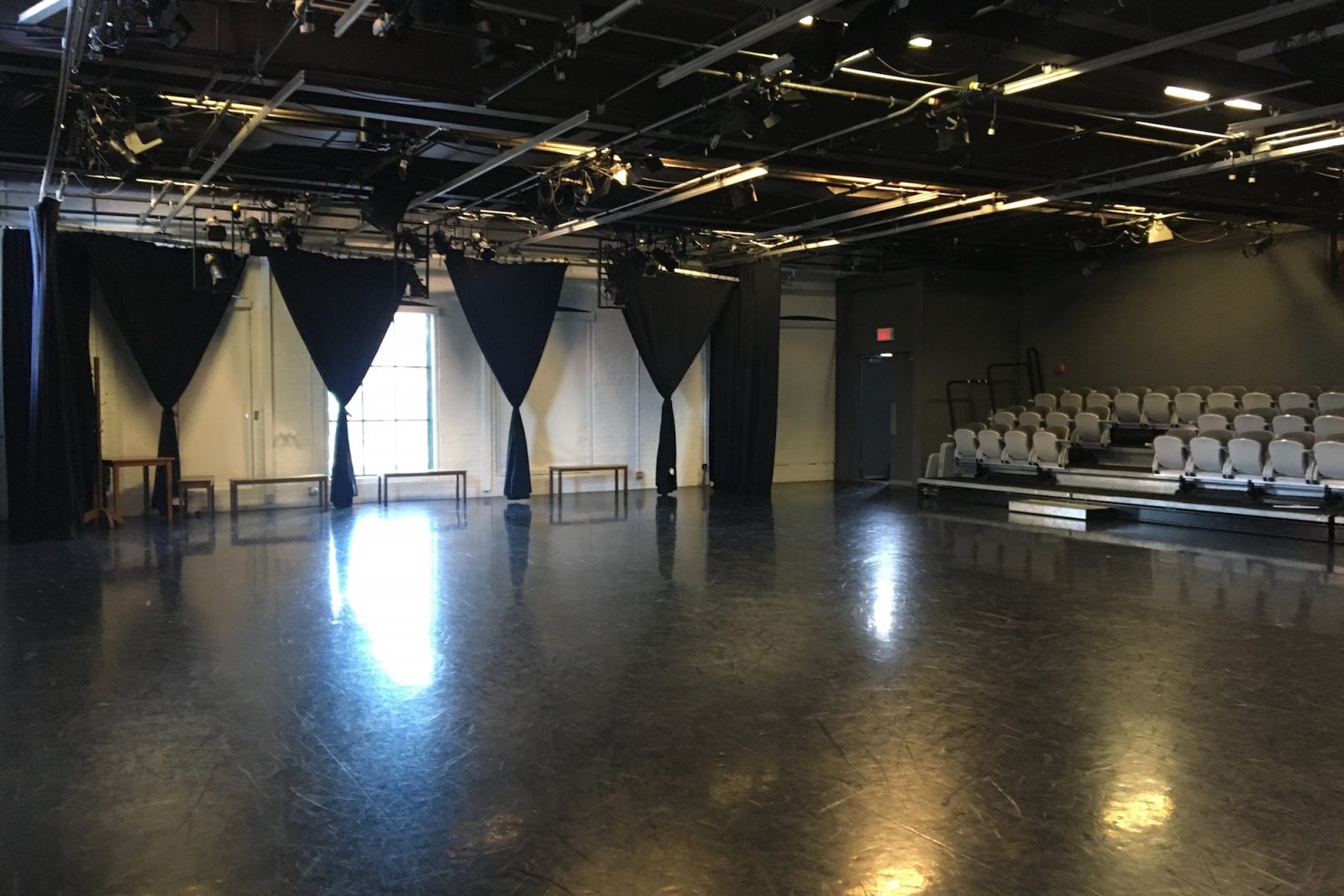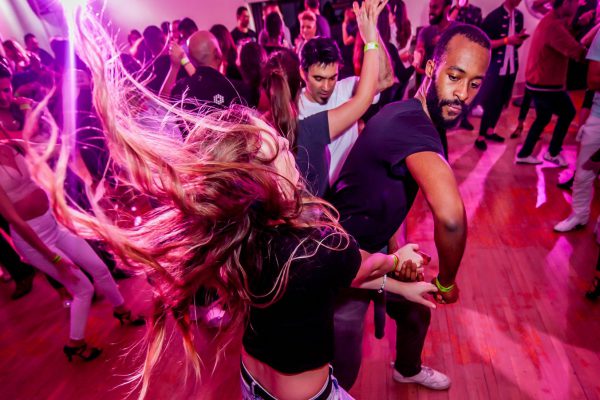After 46 years in operation, one of Toronto’s oldest dance companies has announced its closure. Dancemakers will officially end all activities in July 2021, following a final season of programming.
Dancemakers has been embedded in the city’s independent dance scene for nearly half a century, providing a home for dance experimentation and creation. The company programs residencies, performances, workshops and other activities that foster creative development, in addition to offering affordable studio rental space.
The closure comes as another blow to a sector struggling to weather the sustained pandemic, one that confirms the Toronto dance landscape will assuredly be changed post-COVID.

Leading the company through its final season is their newly appointed artistic producer, Natasha Powell. She spoke to the company’s value in the city. “In addition to the programming, the accessibility of the space and the affordability of the space for the independent artist community, Dancemakers is one of the few venues and spaces that offered that subsidized support,” she said.
Summarizing the community response, she continued: “To lose that as we see other live music venues that are being shut down during the pandemic, there’s a lot of concern about what’s going to be left for us. Where will we be able to go? Where will we be able to do our work?”
The closure will also affect artists programmed through Dancemakers — some in multi-year residencies. The premature ending will completely shift their project development. “To have that taken away is extremely heartbreaking,” Powell acknowledged.
But the board was determined to respect the commitments to these artists. “We also felt it was very important to take the time to properly recognize and celebrate Dancemakers’ incredible contribution to the Canadian dance landscape,” said Louis-Michel Taillefer, chair of the board of directors, in an email. “Pandemic support funding from various government bodies has allowed us to do this for one more year.”
Since Dancemakers’ studio rentals and programming have been paused since last March, the company has lost a significant amount of revenue during the pandemic.
While the loss of rental revenues was “the last straw,” explained Taillefer, “The main concern was indeed the rising costs of operations, combined with a gradual but substantial decrease of support from both funders and audiences.” A press release noted that 36 per cent of Dancemakers’ 2019-20 revenue went to occupancy costs, which have seen “annual increase[s] as high as nine per cent in the last four years.”
What supports would have been needed to continue operations? “Much, much lower rent costs, for one,” Taillefer said. “Toronto’s massive economic growth and success is making artwork spaces become increasingly unaffordable.” Dancemakers is a tenant of Artscape Distillery Studios.
When Dancemakers was founded in 1974, there were only two professional dance companies in the city: Toronto Dance Theatre and The National Ballet of Canada. Over the decades Dancemakers evolved from a repertory company to a director/choreographer-driven model (under Bill James and Serge Bennathan) and finally a research and creation space.

“Dancemakers was a huge creative generator, commissioning choreography and many works of original music,” said Carol Anderson, one of Dancemakers’ founding company members, in an email. She also mentioned some of the many choreographers, dancers and musicians it intersected with: Michael J. Baker, Anna Blewchamp, Ahmed Hassan, Henry Kucharzyk, James Kudelka, Lar Lubovitch, Judith Marcuse, Jennifer Mascall, Anne Southam and Paul Taylor.
“In all those years, we danced and danced. It was fantastic to have that dance ‘home,’ ” Anderson said. “Diving deep into developing as a performer was a gift for many who danced with Dancemakers.”
However, Dancemakers’ eventual transition to a research hub contributed to its difficult situation, said Anderson. “It’s hard at the best of times to support the vulnerability of emerging creation, which is resource-hungry and not necessarily aiming toward or offering a return of ‘box office’ or even performance — it’s a much longer-term investment in creative development.”
Powell has no illusions about the challenging role that awaits. As the founder, artistic director and choreographer of her own company, Holla Jazz, she will rely on her producing experience while offering care and support, particularly for the resident artists before the closure. “I’m happy to be that person for the community and to help usher and say farewell to Dancemakers,” she said. “This is something I can do in this moment.”
Her vision for the season is one of reflections and futures: celebrating Dancemakers’ history, uplifting the current resident artists and creating space to discuss possibilities, especially around existing issues that have been magnified by the pandemic, such as accessibility, racial injustice and affordability.
This approach will hopefully “ensure that we’re still continuing to invest in the future of dancemaking,” Powell said, “and that this closure is not just the end and we haven’t been able to have a dialogue or think about what the future needs of the community are.”
Tagged: Contemporary, Uncategorized, All , Toronto






